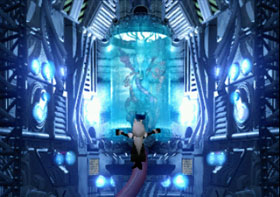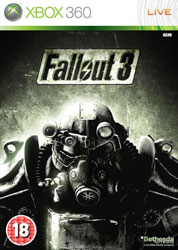After a year dominated by good games, but games that didn’t really push the envelope any further than the number of guns featured in that particular first-person shooter, I’ve changed things up by having a good time with a couple of recent releases that have really taken me back.
Bayonetta was first, and I loved it from the moment it accompanied a drive in a red sports car with Magical Sound Shower on the radio. It’s loaded with references to classic Sega games and revels in the Capcom connection as well – many of the developers worked on Devil May Cry, most notably director Hideki Kamiya – with nods to everything from the obvious Devil May Cry through to Viewtiful Joe and Resident Evil 4. It’s far more entertaining in its homages than something like Matt Hazard, which uses them as an excuse for uninspired design – ironically bad.
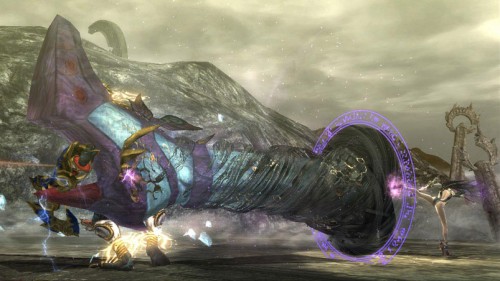
It’s also mind-bendingly gorgeous, outrageously silly on occasions, and unashamedly hardcore in its design. Lower difficulty levels make cool-looking combos easy and accessible through button-mashing, but play it on normal or higher and it takes skill without requiring the third hand that certain similar games can do. The combo system in particular is superb, letting you flick between two different weapon loadouts mid-combo and cancel in and out of them as you go, dodging with a tap of the right trigger. It’s less prescriptive and more spectacular than Ninja Gaiden, while also less daunting than Devil May Cry 4.
Essentially, it’s just a lot of fun to play, whether you’re out for a challenge or some classic gameplay of a sort that seems to be in decline. Just don’t play it for the story, because that’s utter bollocks.
I’m not convinced that it’s a 10/10, though. Although there’s nothing that I’d pick out as a glaring flaw, it’s very much standing on the shoulders of giants rather than forging its own path, and I like to think of perfect scores as being reserved for the few games that do the latter.
Demon’s Souls is the other game, and although it’s been out in the US for a few months, I only recently took the opportunity to import it. Its buzz has been hard to ignore and it’s even picked up a few awards along the way, and I’m surprised by how easily it seems to have found an audience considering its difficulty and plain old-fashioned bloody-mindedness. Ganged up on by a couple of basic zombies? Dead. Killed again before you manage to resurrect yourself? Dead. Oh, and you’ve lost all your collected souls as well. Brilliant…
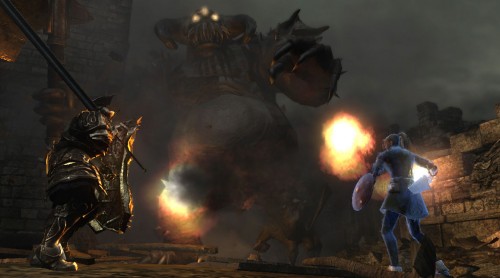
Both games are different sides of the same coin. Bayonetta is brash, loud, and intent on having fun with its audience but also accessible, whereas Demon’s Souls wants to trip you up and is only playable by someone who can play through the frustration. It’s not fun, per se, but it’s a very compelling challenge, and the enjoyment is in getting through it and finally beating that boss who reduced you to a broken pile of bones within seconds of your first meeting.
But regardless of their wildly divergent approaches, I’m just happy to see that games like this – ‘proper’ games, as I’ll hesitantly call them – can still succeed. As much as I love Modern Warfare 2, I like to see games hewn of the bedrock of gaming history still getting out there and doing good business. Hack-and-slash action games and roguelikes – admittedly, Demon’s Souls isn’t quite that bad – were once staples of gaming, and Bayonetta and Demon’s Souls represent their modern equivalents, doing a great job of keeping the old-school flag flying. We should appreciate them for that.
But now, Atlus, how about pulling your finger out and giving Demon’s Souls a European release? This is 2010, not 1995.

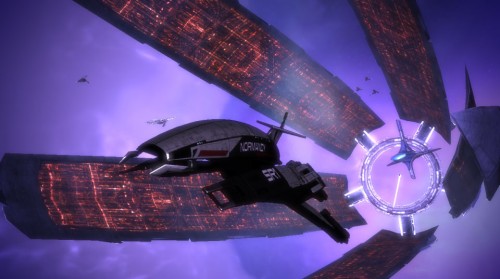
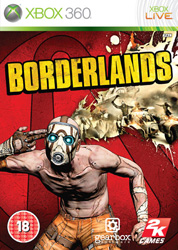 I don’t have any more categories than an overall top ten when I pick my game of the year, but if I was going to nominate the best value purchase of the year it would certainly be Borderlands. It cost me less than £18 and I got far more out of it than most full-price purchases. And thankfully it’s not been completely overlooked either, as it’s the
I don’t have any more categories than an overall top ten when I pick my game of the year, but if I was going to nominate the best value purchase of the year it would certainly be Borderlands. It cost me less than £18 and I got far more out of it than most full-price purchases. And thankfully it’s not been completely overlooked either, as it’s the 